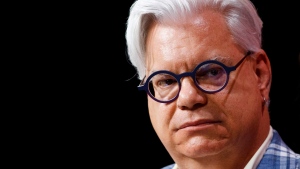CUPE Ontario President Under Fire for Sharing Controversial Social Media Post
The president of the Canadian Union of Public Employees (CUPE) Ontario, Fred Hahn, is facing backlash after reposting a divisive and offensive social media post on his personal Facebook page.
The post in question, which has since been deleted, featured a photo of a group of people holding a sign that read “F*ck the police” with the caption “I couldn’t have said it better myself.” The post was originally shared by a user known for their controversial and inflammatory content.
Hahn’s reposting of the photo sparked outrage among many, including members of the police community and political leaders. Ontario Premier Doug Ford called the post “completely unacceptable” and demanded an apology from Hahn.
In response to the backlash, Hahn issued a statement on Twitter, apologizing for sharing the post and acknowledging that it was “divisive and vile.” He also clarified that he does not support or condone violence against police officers.
However, this apology has not appeased many who are calling for Hahn’s resignation. The Toronto Police Association released a statement condemning Hahn’s actions and calling for CUPE Ontario to take action.
This is not the first time Hahn has faced criticism for his social media activity. In 2019, he faced backlash for sharing a post that compared the Ford government to Nazis.
CUPE Ontario has also released a statement, acknowledging Hahn’s apology and stating that they do not condone any form of hate speech. They have also stated that they will be reviewing their social media policies and procedures.
The controversy surrounding Hahn’s reposting of the divisive social media post has sparked a larger conversation about the responsibility of public figures and leaders to be mindful of their online presence and the impact of their words and actions.
As of now, it remains to be seen what further consequences, if any, Hahn will face for his actions. However, it is clear that this incident has caused significant damage to his reputation and has raised important questions about the role of social media in public discourse.




